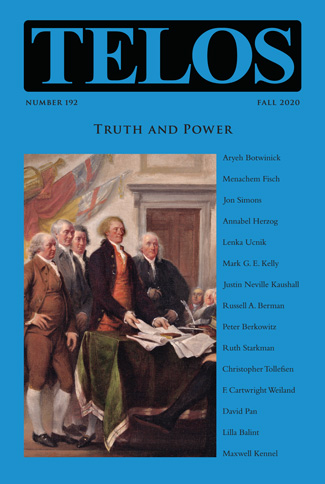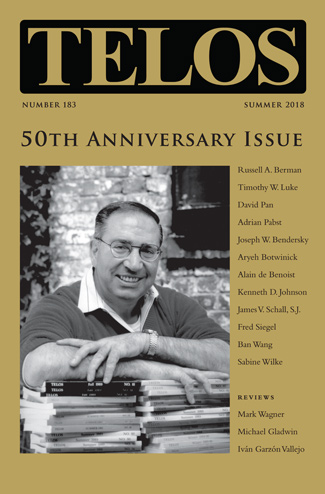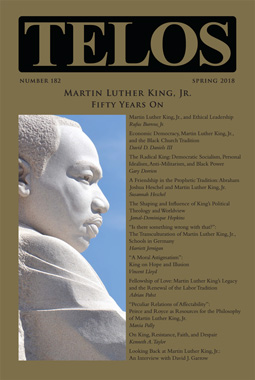By Dr. Jacqueline C. Rivers · Monday, October 5, 2020 The following essay originally appeared on June 12, 2020, at Religion Unplugged. Reposted here by permission.
For more than a week, hundreds of thousands of Americans, black and white, have taken to the streets across the country in an enormous outpouring of pain and rage. People, throughout the nation, primarily youth and of every race and ethnicity, have been responding to the vicious murder of George Floyd in Minneapolis on Memorial Day. Their powerful emotions have overwhelmingly been channeled into protests in over 75 cities.
Starting in Minneapolis and spreading to cities as far-flung as Atlanta, Boston, New York, Chicago, and Los Angeles and even to London and Paris, people have gathered in large numbers from coast to coast, in the north and south. The vast majority of protesters have been peaceful, and the events themselves have generally been nonviolent throughout their scheduled duration. However, a smaller number of rioters have resorted to shocking levels of violence, often after the official end of the protest. Their actions have been extremely destructive and deeply troubling: police cars have been burned; police officers have been pelted with projectiles; a police precinct in Minneapolis was torched; small businesses have been destroyed. In many cities such as Boston, some police officers have shown great restraint in the face of insults and harassment. But in almost every city, we have seen arrests and the use of violence against peaceful protesters, notably in the nation’s capital, Washington, D.C.
Continue reading →
By David Pan · Friday, September 25, 2020 Telos 192 (Fall 2020): Truth and Power is now available for purchase in our store. Individual subscriptions to Telos are also available in both print and online formats.
 There is a strong temptation to oppose the idealism of truth to the realism of power in order to criticize and turn away from politics as a base pursuit. Science, facts, and ideals are cited as the objective truths that so often are ignored in favor of ideology, lies, and self-interest by those who wield power. Yet this opposition between truth and power can itself become a dubious tactic, as it is often the speaker who seeks to define an opinion as truth. This situation is complicated by the circumstance that there are three forms of truth that are often merged in such discussions. There is a strong temptation to oppose the idealism of truth to the realism of power in order to criticize and turn away from politics as a base pursuit. Science, facts, and ideals are cited as the objective truths that so often are ignored in favor of ideology, lies, and self-interest by those who wield power. Yet this opposition between truth and power can itself become a dubious tactic, as it is often the speaker who seeks to define an opinion as truth. This situation is complicated by the circumstance that there are three forms of truth that are often merged in such discussions.
First, there are natural scientific truths that even autocrats and totalitarians do not seek to deny, as they are the source of the technological tools that can support any attempt to maintain power. Here, there is certainly no conflict between truth and power. Not only does political power depend on technological achievement, but natural scientific facts cannot be covered up by lies and ideology for long. Consequently, political actors must pay attention to natural scientific and technical knowledge, even if they then instrumentalize it in different ways.
Continue reading →
By Russell A. Berman · Monday, June 11, 2018 Telos 183 (Summer 2018), celebrating the fiftieth anniversary of the journal Telos, is now available for purchase in our store.
 Telos began this anniversary year with our previous issue’s exploration of the legacy of Martin Luther King, Jr., tragically assassinated fifty years ago in April. That too was 1968, the excitement of profound social change and the bitter taste of disappointment. So much in our culture today remains framed by that specific polarity. Now, in this issue of the journal, we take stock more broadly: not a judgment on that one year but a return to some of the key themes that have defined Telos. We have been able to carry on these discussions thanks to the vision of the founder, Paul Piccone, the support of our publisher, Mary Piccone, the dedication of our editorial group, the intellectual agility of our authors, and the loyalty of our readers. Thanks to all. Telos began this anniversary year with our previous issue’s exploration of the legacy of Martin Luther King, Jr., tragically assassinated fifty years ago in April. That too was 1968, the excitement of profound social change and the bitter taste of disappointment. So much in our culture today remains framed by that specific polarity. Now, in this issue of the journal, we take stock more broadly: not a judgment on that one year but a return to some of the key themes that have defined Telos. We have been able to carry on these discussions thanks to the vision of the founder, Paul Piccone, the support of our publisher, Mary Piccone, the dedication of our editorial group, the intellectual agility of our authors, and the loyalty of our readers. Thanks to all.
Continue reading →
By Kenneth A. Taylor · Monday, May 14, 2018 Kenneth A. Taylor’s “On King, Resistance, Faith, and Despair” appears in Telos 182 (Spring 2018), a special issue commemorating the life and thought of Martin Luther King, Jr. Read the full article at the Telos Online website, or purchase a print copy of the issue in our online store. Individual subscriptions to Telos are now available in both print and online formats.
Martin Luther King, Jr.’s deep and abiding religious faith led him to believe that “the arc of the moral universe is long, but . . . bends toward justice.” Though he believed that God exercises providential guidance over the universe, he did not think that the work of bending the arc of the universe belongs to God alone, with no need for human agency. We humans are urgently called by God to cooperate in the struggle for justice through “vigorous and positive action.” And King knew firsthand how arduous this struggle could be. We toil for justice in a darkened world that creaks and groans under the weight of many and diverse forms of injustice. Heeding the call may cost us much that is dear—including, as it did for King himself, our lives. King was convinced, however, that if our efforts are anchored in faith, we can rest assured that if we do heed the call, we will struggle neither alone nor in vain. The God who calls to us will struggle with us. “Evil dies on the seashore,” says King, “not merely because of man’s endless struggle against it, but because of God’s power to defeat it.” His faith that this is so not only spurred him to action but sustained him in his darkest hours and functioned as a bulwark against a potentially paralyzing despair.
Continue reading →
By David D. Daniels III · Monday, May 7, 2018 David D. Daniels III’s “Economic Democracy, Martin Luther King, Jr., and the Black Church Tradition” appears in Telos 182 (Spring 2018), a special issue commemorating the life and thought of Martin Luther King, Jr. Read the full article at the Telos Online website, or purchase a print copy of the issue in our online store. Individual subscriptions to Telos are now available in both print and online formats.
Is the concept of a “moral arc” to the economy that bends toward justice implicit in the thought of Martin Luther King, Jr.? Can a source for this concept be found in the economic justice campaigns of the Black Church? A moral arc to the economy that bends toward justice informs King’s concept of economic democracy, which frames his campaigns for economic justice. Throughout King’s writings from 1957 to 1968, he explores the economic plight of African Americans and advocates for economic remedies to the subordination of African Americans within most sectors of the American economy and the exclusion of African Americans from other sectors. He understands that parity between capital and labor is pivotal to achieving economic justice.
Continue reading →
By Kenneth D. Johnson · Monday, March 19, 2018 Telos 182 (Spring 2018), a special issue commemorating the life and thought of Martin Luther King, Jr., is now available for purchase in our store.
 1968 was a tough year for the United States and for many around the world. The Tet Offensive in Vietnam started in January, and the My Lai massacre occurred there in March. In Paris, the student uprising started in May. The Prague Spring, during which Czechoslovakian activists sought a measure of greater freedom for their country from the Soviet Union, was crushed by Warsaw Pact military forces in August. Police rioted at the Democratic National Convention in Chicago in August, beating student protestors indiscriminately in the streets. The Weather Underground emerged in October, and black American sprinters Tommie Smith and John Carlos gave their gloved Black Power salute as a protest during the Mexico City Olympics that same month. Richard M. Nixon was elected as president in November. And, there were two pivotal deaths: Robert F. Kennedy in June, and Reverend King in April. After King’s assassination, many U.S. cities erupted in flames as their African American residents protested his killing and the moribund state of civil rights progress at the time of King’s death. 1968 was a tough year for the United States and for many around the world. The Tet Offensive in Vietnam started in January, and the My Lai massacre occurred there in March. In Paris, the student uprising started in May. The Prague Spring, during which Czechoslovakian activists sought a measure of greater freedom for their country from the Soviet Union, was crushed by Warsaw Pact military forces in August. Police rioted at the Democratic National Convention in Chicago in August, beating student protestors indiscriminately in the streets. The Weather Underground emerged in October, and black American sprinters Tommie Smith and John Carlos gave their gloved Black Power salute as a protest during the Mexico City Olympics that same month. Richard M. Nixon was elected as president in November. And, there were two pivotal deaths: Robert F. Kennedy in June, and Reverend King in April. After King’s assassination, many U.S. cities erupted in flames as their African American residents protested his killing and the moribund state of civil rights progress at the time of King’s death.
Continue reading →
|
|





